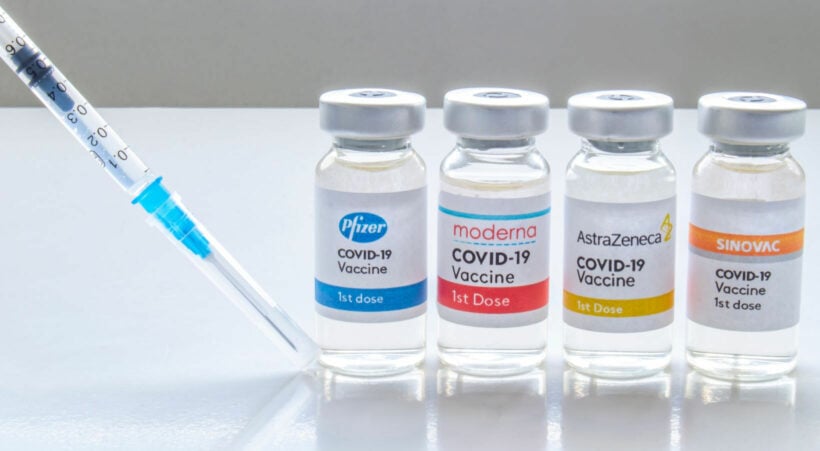Study: vaccines prevented nearly half a million deaths in Thailand

Since the start of the Covid-19 epidemic, 31,031 people have died in Thailand from the virus, but a research team suggest that it could have been much worse without vaccines. The team from Mahidol University suggested that, without a vaccination programme in place, Thailand would likely have seen another 490,000 deaths.
The MRC Centre for Global Infectious Disease Analysis compile data from 185 countries and the research team used those mathematical modelling figures in their calculations. The analysis studied from when the first vaccinations were given last year until July 3 of this year.
Their analysis, led by the Faculty of Science, calculated that, if Thailand had not launched a vaccine rollout and administered vaccines to millions of people, up to 490,000 people in the country would have lost their lives. The MRC data went a step further to calculate that, between December 8 of 2020 and December 8 of last year, vaccines stopped the loss of life for 14.4 million people around the world.
Fortunately, Thailand did eventually get vaccines to nearly everyone who wanted one, and the damage that Covid could have done was lessened. As a result, in calculating the numbers of people who had died in the country, the death rate ended up being below 0.1%, close to a seasonal flu.
The death toll has been seen to be higher though in the most vulnerable groups for people who received their third booster vaccine later. So the Department of Disease Control is recommending that anyone considered high risk, like the elderly or those with underlying diseases or pregnant women, get booster shots every 3 months.
The head of the DDC said that those booster shots have helped to reduce the number of death and the severity of infections suffered in Thailand, and said that the Omicron BA.4 and BA.5 variants are less severe than the previous Delta strain. 7,000 doses of AstraZeneca’s Long-Acting Antibody combination are also expected to be delivered next week for people who need an organ transplant or have kidney disease.
SOURCE: Bangkok Post
Latest Thailand News
Follow The Thaiger on Google News:


























